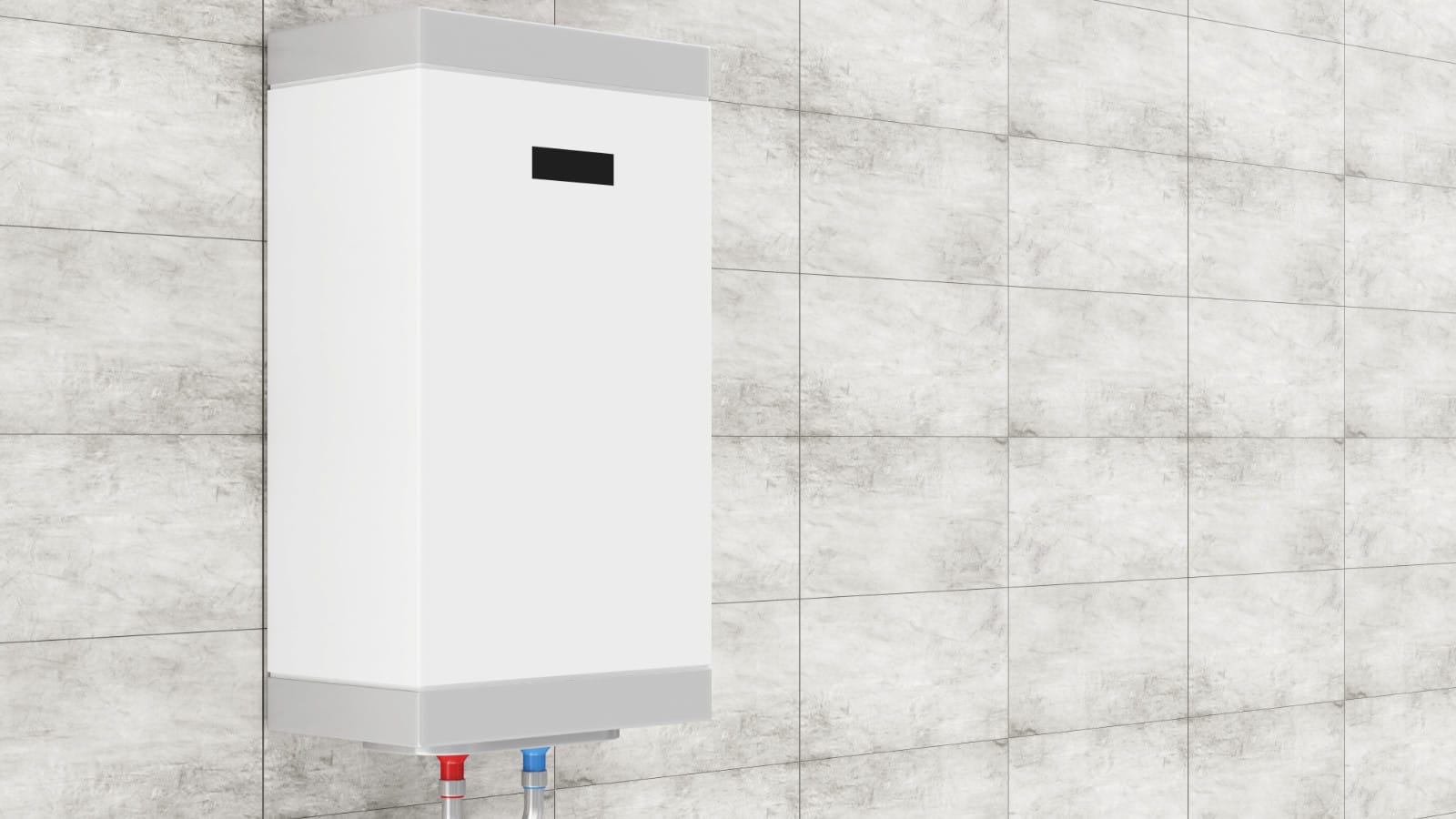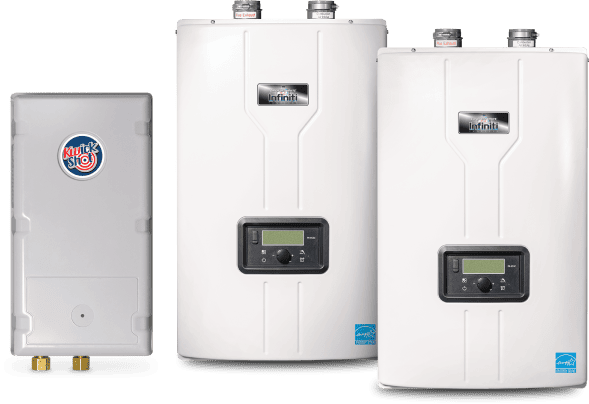My Introduction To The Benefits Of Tankless Water Heaters
My Introduction To The Benefits Of Tankless Water Heaters
Blog Article
What're your ideas concerning Why You Should Consider a Tankless Water Heater?

In a globe where convenience and performance preponderate, it's not a surprise that home owners are frequently looking for smarter methods to handle their home's energy consumption and convenience. One advancement that has continuously gotten popularity is the tankless hot water heater. Yet just what makes these systems stick out from the conventional tank-based designs a lot of us grew up with? Let's dive in and discover the benefits of tankless hot water heater, helping you decide if it's time to make the button in your home.
Intro
Picture this: you enter the shower after a long day, expecting a comforting waterfall of hot water, only to be welcomed by icy droplets because the last person utilized everything up. Noise acquainted? Conventional water heaters keep a set amount of hot water, suggesting you're at the grace of that storage tank's supply. Tankless systems, on the other hand, warmth water on demand. No more going out mid-shower, say goodbye to wrestling with schedules just to ensure hot water is available.
Understanding Tankless Water Heaters
What Are Tankless Hot Water Heater?
Tankless hot water heater, in some cases known as on-demand or instant hot water heater, supply hot water just as it's required. Rather than keeping gallons of pre-heated water, these units kick right into activity the minute you turn on the faucet. Water travels through a heat exchanger, heating up in real-time, implying you obtain an uninterrupted flow of warm water without the demand for a large container resting lazily by.
Just how Do They Vary from Typical Systems?
Standard heaters hold a reservoir of warm water, using power to maintain that tank at a consistent temperature. Tankless units get rid of the standing supply, minimizing squandered power and the cumbersome footprint of a big cyndrical tube. Essentially, you're updating from a "accumulation" mindset to a "made-to-order" technique.
Usual Sorts Of Tankless Devices
Tankless hot water heater usually are available in 2 ranges: gas and electric. Gas designs tend to provide greater circulation rates, suitable for larger houses, while electric designs usually offer smaller homes and are generally simpler to install. Additionally, some systems are created for point-of-use (serving one fixture) while others can handle the entire home's hot water demands.
Secret Benefits of Tankless Hot Water Heater
Power Performance and Cost Cost Savings
Say goodbye to heating up a titan tank's worth of water and maintaining it cozy all day. Tankless heaters decrease standby power losses, which can lower energy expenses. While the preliminary price may be higher, the long-lasting financial savings often validate the investment.
3. Space-Saving Style
If your home is short on storage, removing the cumbersome storage tank frees up useful space. Tankless units are portable and can often be placed on walls, concealed in edges, or installed in limited utility storage rooms without monopolizing the whole area.
4. Longer Life expectancy
A well-kept tankless hot water heater can outlive its tank-based cousin. Conventional tanks may last 10-15 years, while tankless versions can maintain chugging along for 20 years or more, making them a solid investment gradually.
1. Unlimited Hot Water Supply
Ever before had to arrange showers so every person obtains their fair share of hot water? With tankless, that becomes a distant memory. As long as the heating system's circulation capacity isn't gone beyond, you can take back-to-back showers without developing into a popsicle.
5. Improved Water Top Quality
Keeping water in a tank can occasionally result in sediment build-up or a slightly "off" preference. With tankless systems, fresh water is heated right away, minimizing the opportunities of debris accumulation and potentially supplying cleaner-tasting water.
Considerations Prior To Changing
Though the advantages are engaging, it's wise to take into consideration a couple of aspects before fully committing.
Evaluating Your Home's Water Usage Patterns
If your family simultaneously makes use of numerous components with high hot water need, see to it the system's flow price fulfills your requirements. Understanding your use patterns helps you select the right dimension and type of tankless heating system.
Upkeep and Treatment Tips
Tankless systems are relatively low upkeep, however they aren't set-it-and-forget-it home appliances.
Normal Cleansing and Descaling
Difficult water minerals can accumulate in the heat exchanger, influencing performance. Routine descaling (often advised every year) keeps the system going for peak performance.
Yearly Expert Evaluations
A yearly checkup from a specialist ensures minor problems are caught early. They'll evaluate the device's performance, search for leaks, and help preserve optimum effectiveness.
First Investment Expenses
Tankless heating units usually feature a greater ahead of time cost. In between the device itself and potential installation adjustments, the preliminary price may offer you sticker shock. However keep in mind to see it as a long-term investment.
Installation Needs
Depending on your home's facilities, you might need additional electric capability or gas line upgrades. Guarantee you comprehend the installment requirements and consult with an expert to stay clear of surprises.
Making Sure Correct Ventilation
For gas designs, correct ventilation is essential to safely remove exhaust gases. See to it airing vent systems are clean and correctly set up to avoid any possible safety and security threats.
Contrasting Different Brands and Models
Not all tankless hot water heater are produced equal.
Investigating Dependable Makers
Try to find respectable brand names with a background of producing high quality devices. A trusted supplier typically supplies better customer support and longer warranties.
Installment: Do It Yourself or Professional?
While some homeowners delight in tackling tasks themselves, tankless installment may not be the best time to burst out the tool kit.
Benefits and drawbacks of Do It Yourself Installation
A do it yourself mount can conserve cash, however it includes risks. Incorrect setup can result in ineffectiveness or safety problems. If you come in handy and have experience, it may be possible-- but wage caution.
Reading Evaluations and Customer Responses
User evaluations and comments from next-door neighbors or buddies who have gone tankless can provide important insights. Often, real-life experiences can be extra informing than advertising and marketing sales brochures.
When to Call a Specialist Plumber
For most, calling a pro guarantees everything's done correctly. A professional plumbing professional comprehends neighborhood codes, sizing needs, and airing vent criteria, decreasing the threat of incidents.
Maximizing Effectiveness
You have actually purchased a tankless unit-- currently maximize its performance.
Ideal Temperature Setups
Most people set their units in between 120-140 F. Readjusting the temperature level can enhance convenience and financial savings. Experiment to locate a sweet area that doesn't lose power.
Coupling With Low-Flow Fixtures
Want to stretch your unit's abilities? Think about setting up low-flow showerheads and faucets. They lower water usage, permitting your tankless system to deliver a consistent stream of warm water without stressing.
Environmental Effect
Tankless water heaters align with greener living objectives.
Minimized Carbon Footprint
By utilizing much less energy and just home heating water as required, tankless systems can reduce your home's carbon footprint, decreasing your ecological impact.
Conserving Natural Resources
Much less energy consumption and much less squandered warm water translate into less natural resources being utilized, an ecological win-win.
Who Benefits Many from Tankless Heaters?
The charm of tankless heaters is that they can suit a variety of homes.
Large Family Members vs. Single Residents
Huge households may enjoy the limitless warm water supply, while single owners appreciate the energy savings from not heating a whole container for simply a single person's morning shower.
Home Owners with Limited Space
If your home is short on square footage, losing the bulky container liberates space for other fundamentals-- or maybe just more breathing space.
Eco-Conscious Consumers
Going tankless aligns with environmentally friendly worths, guaranteeing you're not squandering power or sources.
Future Trends in Tankless Hot Water Heater
The world of home devices is ever-evolving, and tankless hot water heater are no exception.
Advancements in Technology
R&D is frequently enhancing warm exchangers, making devices much more efficient and durable. Future versions might be even quieter, a lot more compact, and better fit for differing climates.
Smart Home Combination
Think of readjusting your hot water heater's temperature level via an app or receiving upkeep alerts on your phone. As smart home tech breakthroughs, we'll see even more connection and ease.
Conclusion
Picking a tankless hot water heater is greater than simply updating your home's hot water system; it's investing in lasting convenience, power performance, and a greener lifestyle. By considering your home's water use, bearing in mind installation requirements, and dedicating to normal maintenance, you can enjoy a consistent stream of warm water without the baggage of a bulky storage tank. As modern technology progresses, you can look forward to also smarter, much more effective tankless remedies that not only make your life simpler however additionally profit the planet.
Why You Should Consider a Tankless Water Heater for Your Home
Energy Efficiency and Cost Savings
Tankless water heaters, also known as on-demand water heaters, heat water only when needed. This means they don't waste energy keeping a tank of water hot constantly. This efficiency translates into substantial cost savings on your monthly energy bills.
Endless Hot Water Supply
One of the significant advantages of tankless water heaters is their ability to provide a continuous supply of hot water. Traditional tank water heaters have a limited capacity and can run out of hot water, especially during peak usage times. In contrast, tankless water heaters can provide an endless stream of hot water, making them ideal for larger families or homes with high water usage.
Space-Saving Design
Tankless water heaters are compact and take up significantly less space compared to traditional tank heaters. They can be installed on walls, under cabinets, or even outside, freeing up valuable space in your home. This makes tankless water heaters a great option for smaller homes or properties with limited space for a traditional water heater.
Longer Lifespan and Lower Maintenance
Tankless water heaters typically have a longer lifespan compared to traditional tank heaters. They can last up to 20 years or more with proper maintenance. Additionally, tankless systems are designed with replaceable parts, which can extend their lifespan further and reduce long-term maintenance costs.
Environmentally Friendly
Reducing energy consumption not only saves you money but also benefits the environment. Tankless water heaters contribute to a smaller carbon footprint by using less energy to heat water. Their energy efficiency and ability to minimize standby heat loss make them an eco-friendly choice for environmentally conscious homeowners.
Customized Temperature Control
Tankless water heaters offer precise temperature control, allowing you to set the desired temperature to meet your specific needs. This level of customization ensures you always have water at the perfect temperature for your comfort and usage requirements.
https://beantownservices.com/blog/consider-tankless-water-heater-for-your-home

As a passionate person who reads about 5 Benefits of Tankless Water Heaters, I was thinking sharing that piece of content was worth the trouble. Please pause to distribute this post if you liked it. Thanks a bunch for being here. Revisit us soon.
Visit Page Report this page